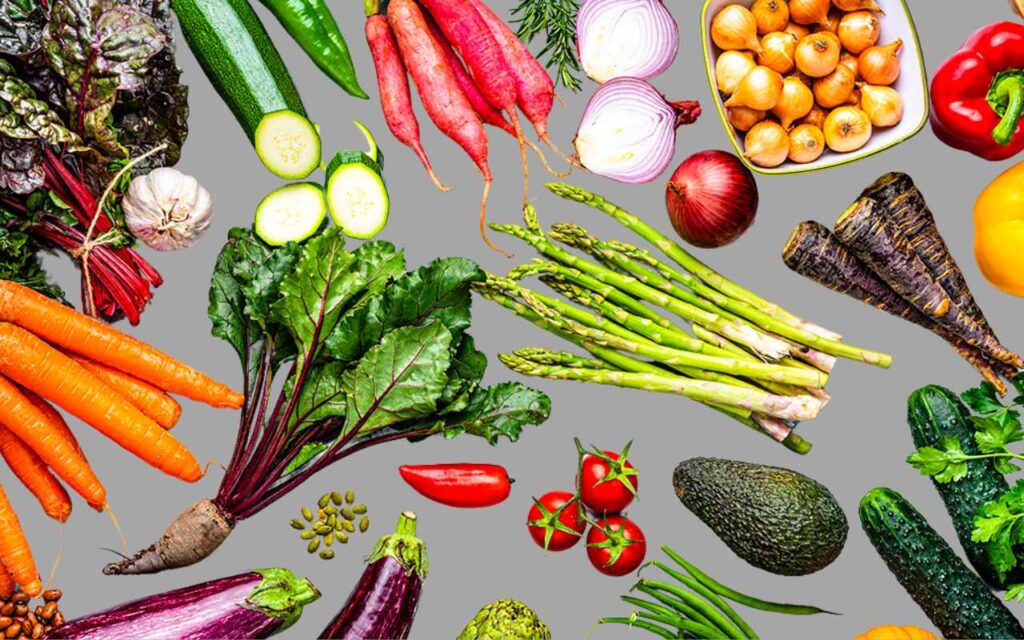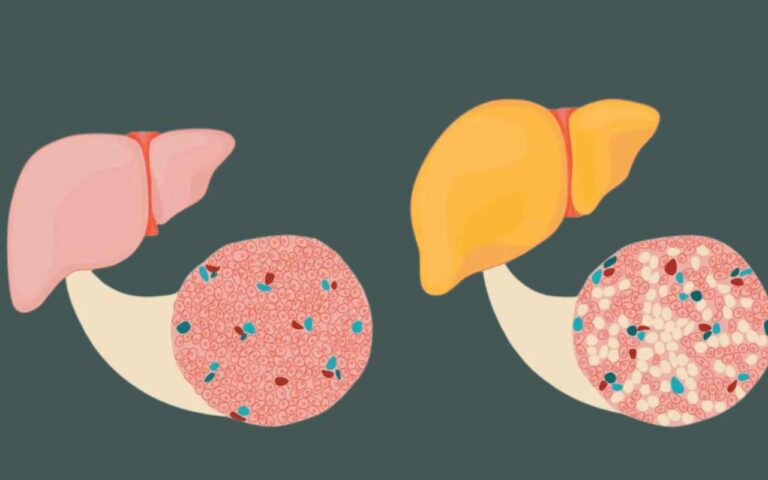Top 10 Healthy Vegetables for Your Diet
Healthy Vegetables: Eating a mix of nutrient-rich vegetables every day is great for your health. From leafy greens like spinach to colorful root veggies like carrots, these foods are full of vitamins, minerals, fiber, and antioxidants. Adding different veggies to your meals helps you get the most health benefits. (Healthy Vegetables)
We’ll look at the top 10 veggies that are good for you and easy to add to your meals. These veggies can help increase your nutrient intake, boost your immune system, and lower your risk of chronic diseases. They’re sure to become your new favorites. (Top 10 veggies)
Spinach: A Nutrient-Dense Leafy Green
Spinach is a top choice for adding nutrition to your meals. It’s full of vitamins, minerals, and antioxidants. These nutrients are great for your health. (Healthy Vegetables)
Spinach’s Nutritional Powerhouse
One cup of raw spinach gives you all the vitamin K you need for the day. It’s also loaded with vitamins A and C. Plus, it has magnesium, folate, and iron.
Spinach is full of antioxidants like lutein, kaempferol, and zeaxanthin. These can help control blood sugar and cholesterol, and might lower cancer risk.
“Spinach is one of the most nutrient-dense leafy green vegetables you can eat.”
You can eat spinach raw in salads or cooked in many dishes. It’s versatile and packed with nutrients, making it great for a healthy diet.
- Spinach is mostly water and has just 23 calories per 3.5 ounces (100 grams).
- A 100-gram serving of spinach has 28.1 milligrams of vitamin C, which is 34% of what you need daily.
- Spinach gives you 24 milligrams of magnesium per cup. This is key for energy, muscles, nerves, heart health, and more.
- The antioxidants in spinach, like alpha-lipoic acid, can lower glucose levels, make insulin work better, and fight oxidative stress in diabetes patients.
Adding spinach to your meals is a smart way to get more vitamins, minerals, and antioxidants. It’s good for your overall health and well-being.
Carrots: A Vibrant Source of Vitamin A
Carrots are a powerhouse of nutrients, especially vitamin A. They are full of beta-carotene, which turns into vitamin A in the body. Just one cup of raw carrots gives you over 400% of the daily vitamin A you need.
Vitamin A is key for healthy eyes, a strong immune system, and cell growth. Beta-carotene in carrots may lower the risk of cancers like colorectal and lung cancer. (Healthy Vegetables)
The Nutritional Profile of Carrots
Carrots are mostly water, with some carbs and a bit of fiber. They have about 9 grams of fiber per 100 grams. With only 41 calories per 100 grams, they’re great for weight management.
Carrots are also packed with vitamins and minerals like vitamin K, vitamin C, potassium, and biotin. These nutrients are important for your health and well-being. (Healthy Vegetables)
Incorporating Carrots into Your Diet
Carrots can be enjoyed in many ways. You can eat them raw, roasted, steamed, or in soups and stews. They add flavor and nutrition to any meal. Try them as a snack, side dish, or in smoothies for a nutritional boost.
Adding carrots to your meals helps you get lots of vitamin A and other nutrients. Choose the brightest carrots for the most beta-carotene. (Healthy Vegetables)
Sweet Potatoes: A Versatile Root Vegetable
Sweet potatoes are packed with vitamins, minerals, and health benefits. They are rich in vitamin A, vitamin C, fiber, and potassium. These tubers are bright and colorful, making them a great choice for your health.
One medium sweet potato gives you over 100% of the daily vitamin A you need. This vitamin is key for healthy vision, immune function, and skin health. They also have a lot of vitamin C, which helps make collagen and supports your immune system.
Sweet potatoes are high in fiber and complex carbs. This can help control blood sugar levels, especially for people with diabetes or prediabetes. Studies show that eating sweet potatoes can improve blood sugar control and make insulin work better.
Sweet potatoes are very versatile. You can bake, roast, mash, or use them in many dishes. Try adding them to hashes, tacos, nachos, or even as a dessert topping. They make a great, healthy addition to your meals. (Healthy Vegetables)
| Nutrient | Amount per 1 cup (200g) baked sweet potato with skin | Percentage of Daily Value (DV) |
|---|---|---|
| Fiber | 6.6 grams | – |
| Vitamin A | 213% | – |
| Vitamin C | 44% | – |
| Manganese | 43% | – |
| Copper | 36% | – |
| Pantothenic Acid | 35% | – |
| Vitamin B6 | 34% | – |
| Potassium | 20% | – |
| Niacin | 19% | – |
Sweet potatoes come in various colors like orange, brown, yellow, or purple with orange or white flesh. Each color offers unique health benefits. For example, purple sweet potatoes have anthocyanins that can slow cancer cell growth.
Whether you bake, roast, or add them to recipes, sweet potatoes are a great choice. They are nutritious and can be a tasty part of a balanced diet.

Broccoli: A Cruciferous Powerhouse
Broccoli is a super-healthy vegetable full of vitamins, minerals, and compounds that are good for you. Eating just one cup of cooked broccoli gives you 80 mg of vitamin C, which is a lot. It also has 5 grams of fiber, helping you meet your daily fiber needs.
Broccoli is more than just nutritious. It has sulforaphane, which might help fight cancer and reduce inflammation. Eating broccoli and other cruciferous veggies can lower the risk of chronic diseases like cancer and heart disease.
You can eat broccoli raw, roasted, or in soups and stir-fries. Try to eat about 2.5 cups of veggies, including broccoli, every day for a healthy life. Broccoli is packed with nutrients and may have health benefits, making it a top veggie choice. (Healthy Vegetables)
| Nutrient | Amount in 1 Cup Cooked Broccoli | % Daily Value |
|---|---|---|
| Fiber | 5 grams | 18% of daily requirement |
| Vitamin C | 80 mg | 89% of daily requirement |
| Vitamin K | 116 mcg | 145% of daily requirement |
| Folate (Vitamin B9) | 84 mcg | 21% of daily requirement |
“Consuming three servings of vegetables a day is linked to slower aging and reduced disease risk.”
Choosing the right way to cook broccoli helps keep its nutrients. Steaming is best, but boiling can lose a lot of nutrients. Microwaving, stir-frying, and sautéing are good ways to keep broccoli’s good stuff.
Broccoli is great for your health, fighting inflammation, or just for taste. Add it to your meals often for a tasty and healthy boost.
Kale: A Nutritious Green Leafy Vegetable
Kale is a top choice for those looking for leafy greens full of nutrients. It’s loaded with vitamins, minerals, and antioxidants. These nutrients are great for your health.
One cup of raw kale gives you 68% of the Daily Value (DV) for vitamin K. It also gives you 6% of the DV for vitamin A and 22% of the DV for vitamin C. These vitamins are key for strong bones, a healthy immune system, and clear skin.
Kale doesn’t stop there. It’s also full of manganese, calcium, and copper. These help keep your blood sugar and cholesterol healthy. Plus, its antioxidants like lutein and zeaxanthin can lower the risk of serious diseases. (Veggies list)
You can eat kale raw in salads and smoothies or cook it lightly to keep its nutrients. Adding kale to your meals is an easy way to get healthier.
“Kale is one of the most nutrient-dense foods on the planet, packed with vitamins, minerals, and antioxidants that can provide a wide range of health benefits.”
Healthy Meal Plan: Nourish Your Body and Mind
Green Peas: A Protein-Packed Veggie
Green peas are a great addition to a healthy diet. They are full of fiber, protein, vitamins, and minerals. These nutrients are good for your overall health. (most health vegetables)
A 1-cup serving of cooked green peas has 8 grams of protein. This is more protein than a cup of cooked spinach or collard greens. The protein helps with muscle growth and can make you feel full, which is good for weight management. (vegetable food restaurant)
Green peas are also high in fiber, with 8 grams per cup. Fiber is key for good digestion and can lower the risk of heart disease and type 2 diabetes. The fiber and protein in green peas help control blood sugar levels. (vegetarians restaurant)
These peas are full of vitamins and minerals like vitamin A, vitamin C, vitamin K, folate, and iron. These nutrients are important for your immune system, bones, and energy. The antioxidants in green peas may also reduce inflammation and lower cancer risk.
Adding more green peas to your meals is a simple way to get more plant-based protein, fiber, and nutrients. Try them in soups, stews, rice dishes, or as a side dish. Your body will appreciate the nutritional benefits.
10 Healthy Vegetables for a Well-Balanced Diet
Keeping a diet full of nutrients is key for good health. Vegetables are a big part of a healthy diet. They are full of vitamins, minerals, fiber, and antioxidants. These can help your immune system, your gut, and might even lower the risk of serious diseases like cancer and heart disease. (vegan restaurants vegan)
Here are 10 top healthy vegetables you should eat for a balanced diet:
- Spinach – A leafy green full of vitamins A, C, and K, plus iron and calcium. It can help control blood sugar and cholesterol and might lower cancer risk.
- Carrots – Packed with beta-carotene, which turns into vitamin A in your body. Carrots can cut down the risk of some cancers.
- Sweet Potatoes – A versatile root vegetable that gives you almost all the vitamin A you need in one medium-sized potato.
- Broccoli – A cruciferous veggie loaded with fiber, vitamins A, C, and K, and sulforaphane. This may fight cancer and inflammation.
- Kale – A green leafy veggie full of vitamins A, B6, C, and K, plus potassium and calcium.
- Green Peas – A protein-rich veggie that gives you 31% of the daily fiber in just one cup of cooked peas.
- Tomatoes – A fruit that acts like a veggie, full of vitamin C and antioxidants. It may help prevent heart, brain, and bowel diseases.
- Brussels Sprouts – A veggie in the cruciferous family that gives you half the vitamin C you need in one serving.
- Bell Peppers – Full of vitamins A and C, potassium, fiber, and antioxidants to fight diseases.
- Garlic and Onions – These veggies are tasty and have compounds like allicin. They may reduce inflammation and fight germs.
Adding these nutrient-dense vegetables to your meals can boost your health and might lower your risk of chronic diseases. Try to eat 2-4 cups of veggies every day for the best health benefits. (Healthy Vegetables)
“Eating a diet rich in vegetables and fruits as part of an overall healthy diet is associated with a reduced risk of some chronic diseases.” – Centers for Disease Control and Prevention
Tomatoes: A Fruit with Vegetable-Like Qualities
Tomatoes are often seen as a vegetable, but they are actually a fruit. They are packed with vitamin C, giving you up to 28% of what you need daily in just one medium tomato. They also have antioxidants like lycopene, which can protect against health issues. (the veggie grill)
Studies show that tomatoes can lower the risk of heart disease, brain disorders, and some cancers. These include cancers of the digestive system. Tomatoes are full of vitamins, minerals, and plant compounds that boost your health. (Healthy Vegetables)
Tomatoes are rich in vitamin C, and antioxidants like lycopene, and may help reduce the risk of heart, neurodegenerative, and bowel diseases.
You can eat tomatoes raw, cooked, or in sauces and salsa. They are great for a healthy diet because they are low in calories and high in fiber. This makes them perfect for keeping a healthy weight and supporting your digestive health. (Healthy Vegetables)
FAQ
What are the top 10 most nutrient-dense and health-promoting vegetables?
The top 10 healthy vegetables include spinach, carrots, sweet potatoes, broccoli, kale, green peas, tomatoes, Brussels sprouts, bell peppers, and garlic/onions.
What are the key nutrients and health benefits of spinach?
Spinach is full of vitamins K, A, and C, plus magnesium, folate, and iron. These nutrients help manage blood sugar, cholesterol and may lower cancer risk.
How are carrots beneficial for health?
Carrots are loaded with beta-carotene, which turns into vitamin A in the body. This helps lower the risk of some cancers and supports eye health and immune function.
What makes sweet potatoes a nutritious root vegetable?
Sweet potatoes are full of vitamins A and C, fiber, and potassium. They help control blood sugar, making them good for diabetes or prediabetes management.
What are the health benefits of broccoli?
Broccoli is rich in vitamins K, C, and B, plus fiber. It also has sulforaphane, which may fight cancer and reduce inflammation.
How is kale a nutritious leafy green?
Kale is loaded with vitamins A, C, and K, and minerals like manganese, calcium, and copper. Its antioxidants can lower cholesterol and help manage blood sugar.
What makes green peas a beneficial vegetable?
Green peas offer fiber, protein, vitamins, and minerals. This mix supports digestive health and blood sugar control, lowering chronic disease risk.
How are tomatoes a nutritious “vegetable”?
Though a fruit, tomatoes are often treated as a vegetable. They’re packed with vitamin C and lycopene, which may cut heart disease, neuro disorders, and cancer risk.








One Comment